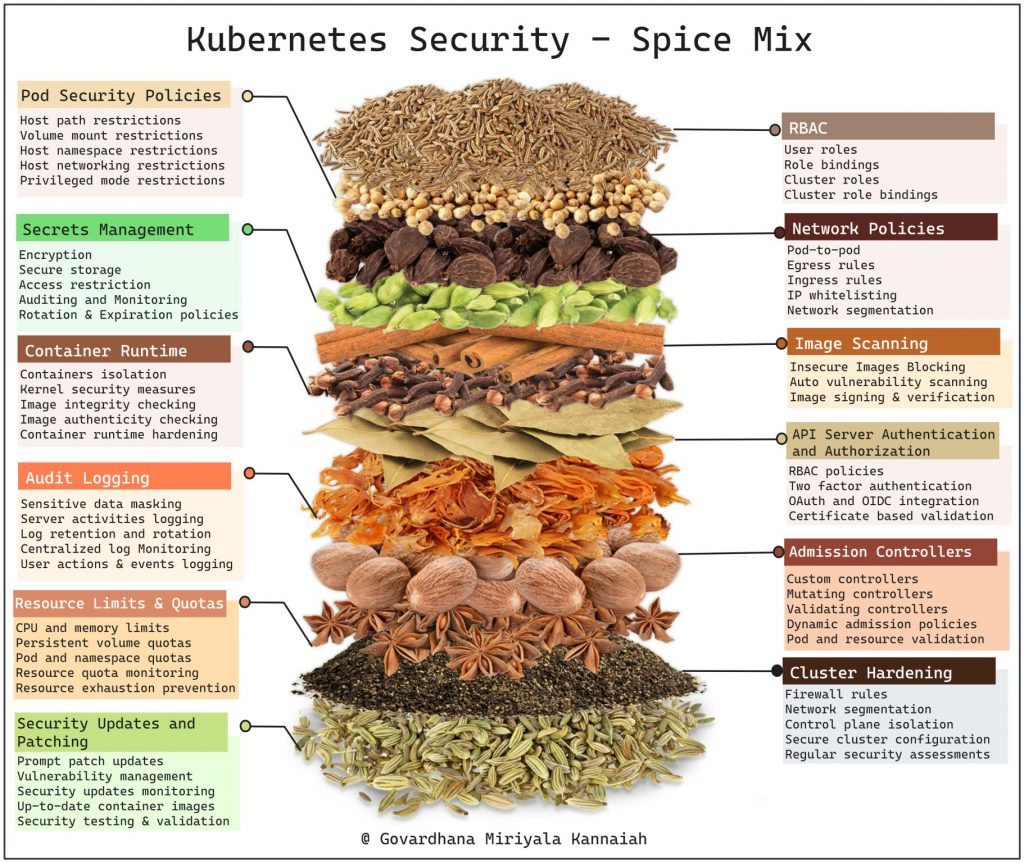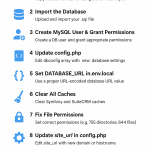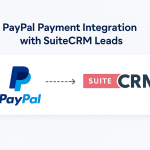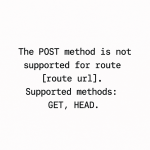Limited Time Offer!
For Less Than the Cost of a Starbucks Coffee, Access All DevOpsSchool Videos on YouTube Unlimitedly.
Master DevOps, SRE, DevSecOps Skills!

Securing Kubernetes clusters is crucial to protect sensitive data, prevent unauthorized access, and ensure the stability and integrity of your applications. Here’s a comprehensive checklist for Kubernetes security:
Cluster configuration security:
- Disable or tightly control insecure APIs and features.
- Enable RBAC (Role-Based Access Control) and assign appropriate roles to users and service accounts.
- Restrict access to the Kubernetes API server.
- Use strong authentication mechanisms such as client certificates or token-based authentication.
- Regularly review and update cluster configurations to align with security best practices.
Network security:
- Isolate the Kubernetes cluster from other networks and enforce network segmentation.
- Implement network policies to control traffic between pods and namespaces.
- Utilize network security tools like network firewalls, VPNs, or network policies offered by cloud providers.
- Enable encryption for data in transit using TLS/SSL certificates.
- Use secure communication channels for inter-node communication.
Node security:
- Regularly patch and update the host operating system.
- Isolate nodes in a separate network or subnet.
- Apply security hardening measures to nodes such as disabling unnecessary services, limiting access, and – enabling firewall rules.
- Implement container runtime security mechanisms like AppArmor or SELinux.
- Scan container images for vulnerabilities before deploying them.
Pod security:
- Utilize Kubernetes Pod Security Policies (PSP) to enforce security policies on pods.
- Use the principle of least privilege to assign appropriate access permissions to pods and containers.
- Enable container runtime security features such as resource isolation, namespace restrictions, and read-only file systems.
- Regularly monitor and audit the behavior of pods and containers.
Image security:
- Utilize container registries with built-in security features.
- Scan container images for vulnerabilities and malware.
- Use trusted base images from official repositories.
- Regularly update and patch container images to include the latest security fixes.
Secrets management:
- Avoid hardcoding sensitive information in configuration files or Dockerfiles.
- Store secrets like API keys, passwords, or tokens in Kubernetes Secrets and restrict access to them.
- Encrypt and secure secrets at rest and in transit.
- Regularly rotate secrets and revoke access when necessary.
Logging and monitoring:
- Enable and configure logging for the Kubernetes cluster.
- Implement centralized log management and analysis.
- Monitor for suspicious activities, unauthorized access attempts, or security incidents.
- Set up alerts and notifications for security-related events.
- Regularly review and analyze logs to detect and respond to security threats.
Backup and disaster recovery:
- Implement regular backups of critical data and configurations.
- Test the restoration process periodically.
- Define a disaster recovery plan to handle potential security incidents or system failures.
- Store backups in a secure location separate from the production environment.
Security testing and audits:
- Perform regular security assessments and penetration testing.
- Conduct vulnerability scans and security audits.
- Address identified vulnerabilities and weaknesses promptly.
- Follow security best practices and guidelines from Kubernetes and cloud providers.
Education and training:
- Provide security awareness training to developers, administrators, and users.
- Promote a security-conscious culture and ensure that everyone understands their responsibilities.
- Stay updated with the latest security threats, patches, and best practices in the Kubernetes ecosystem.

 Starting: 1st of Every Month
Starting: 1st of Every Month  +91 8409492687 |
+91 8409492687 |  Contact@DevOpsSchool.com
Contact@DevOpsSchool.com



